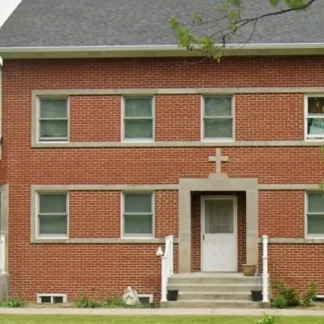Veteran Health Indiana - Richard L. Roudebush VA Medical Center
Richard L. Roudebush VA Medical Center is located in Indianapolis, Indiana. Rich...
Seeds of Hope is a unique addiction recovery program for women over the age of 18. Seeds of Hope is located on the near/Westside of Indianapolis, Indiana.
Contact us for more information: (317) 244-0203

Connect with Seeds of Hope by calling their admissions team directly.
(317) 244-0203 Website Get DirectionsResearch clearly demonstrates that recovery is far more successful and sustainable when loved ones like family members participate in rehab and substance abuse treatment. Genetic factors may be at play when it comes to drug and alcohol addiction, as well as mental health issues. Family dynamics often play a critical role in addiction triggers, and if properly educated, family members can be a strong source of support when it comes to rehabilitation.
Group therapy is any therapeutic work that happens in a group (not one-on-one). There are a number of different group therapy modalities, including support groups, experiential therapy, psycho-education, and more. Group therapy involves treatment as well as processing interaction between group members.
Life skills trainings involve all the skills a person must have in order to function successfully in the world. These include time management, career guidance, money management, and effective communication. Truly successful addiction recovery is based on the ability to not only live substance-free, but to thrive. Life skills teaches the practical necessities of functioning in society, which sets clients up for success in life, and therefore sobriety.
Group therapy is any therapeutic work that happens in a group (not one-on-one). There are a number of different group therapy modalities, including support groups, experiential therapy, psycho-education, and more. Group therapy involves treatment as well as processing interaction between group members.
Life skills trainings involve all the skills a person must have in order to function successfully in the world. These include time management, career guidance, money management, and effective communication. Truly successful addiction recovery is based on the ability to not only live substance-free, but to thrive. Life skills teaches the practical necessities of functioning in society, which sets clients up for success in life, and therefore sobriety.
Life skills trainings involve all the skills a person must have in order to function successfully in the world. These include time management, career guidance, money management, and effective communication. Truly successful addiction recovery is based on the ability to not only live substance-free, but to thrive. Life skills teaches the practical necessities of functioning in society, which sets clients up for success in life, and therefore sobriety.
Richard L. Roudebush VA Medical Center is located in Indianapolis, Indiana. Rich...
Indiana University Health is Indiana’s largest comprehensive health system and i...
Star Guides Wilderness is a private rehab located in Indianapolis, Indiana. Star...
Harborside Healthcare is a private rehab located in Indianapolis, Indiana. Harbo...